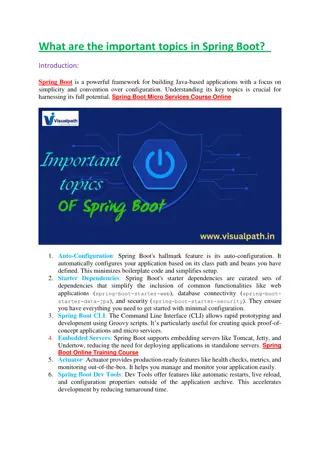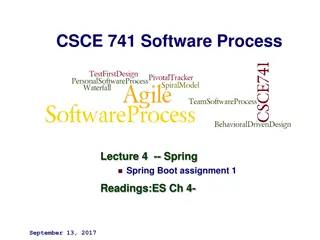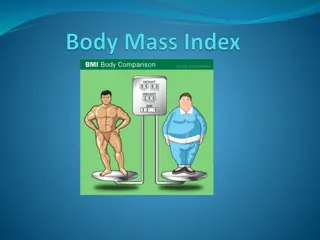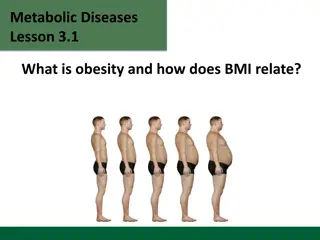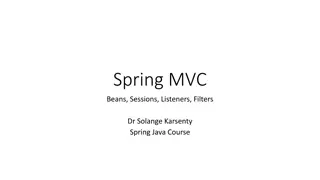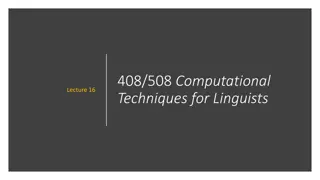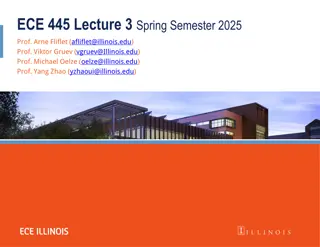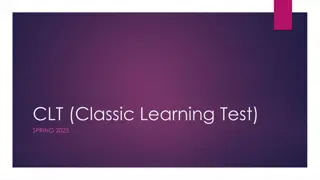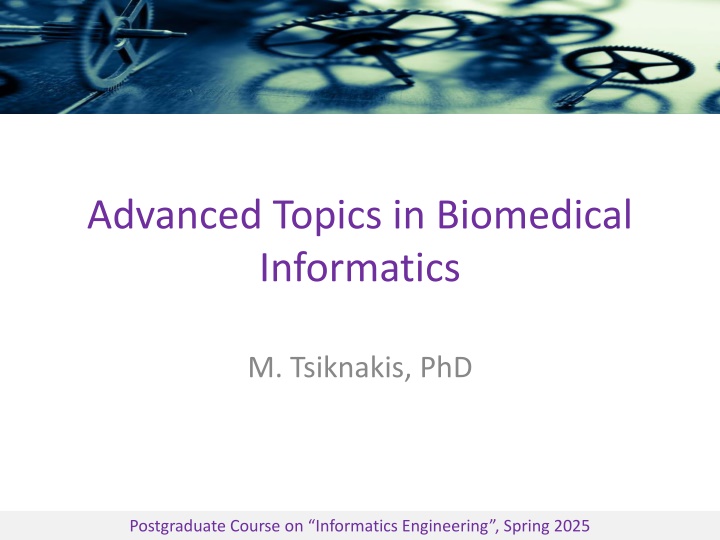
Advanced Topics in Biomedical Informatics: Affective Computing Focus
Explore the exciting field of affective computing in the context of biomedical informatics, focusing on the interaction of emotion with technology, communication of human emotion, and more. This postgraduate course delves into key concepts and methodologies, offering a comprehensive curriculum with lectures, laboratory classes, and projects.
Download Presentation

Please find below an Image/Link to download the presentation.
The content on the website is provided AS IS for your information and personal use only. It may not be sold, licensed, or shared on other websites without obtaining consent from the author. If you encounter any issues during the download, it is possible that the publisher has removed the file from their server.
You are allowed to download the files provided on this website for personal or commercial use, subject to the condition that they are used lawfully. All files are the property of their respective owners.
The content on the website is provided AS IS for your information and personal use only. It may not be sold, licensed, or shared on other websites without obtaining consent from the author.
E N D
Presentation Transcript
Advanced Topics in Biomedical Informatics M. Tsiknakis, PhD Postgraduate Course on Informatics Engineering , Spring 2025
Course title & identity Title: Advanced Topics in Biomedical Informatics Biomedical Informatics is a very broad scientific domain Objectives Primary: Understanding key concepts and methodologies of a selected biomedical informatics sub-domain; Secondary: Novel algorithmic implementation starting by reproducing recent published work. Members of staff Prof. Manolis Tsiknakis, supported by some PhD candidates 2
Scope and Objectives Focus during this semester is on AFFECTIVE COMPUTING This class explores computing that relates to, arises from, or deliberately influences emotion. Topics include the interaction of emotion with cognition and perception; the communication of human emotion via face, voice, physiology, and behavior; construction of computer systems that exhibit skills of emotional intelligence; affective technologies for the recognition of stress, anxiety, depression, pain and empathy; and other areas of current research interest. Weekly reading, discussion, and a term project are required. 3
MITs Affective Computing Course builds on experiences and concepts from the relevant MIT OpenCource Course Description This course instructs students on how to develop technologies that help people measure and communicate emotion, that respectfully read and that intelligently respond to emotion, and have internal mechanisms inspired by the useful roles emotions play. https://ocw.mit.edu/courses/media-arts-and- sciences/mas-630-affective-computing-fall-2015/ 4
Syllabus for the year 2023-2024 Facial expressions, Voice recordings, Motion data - signals from insoles, Biosignals from wearables (GSR, smart watch data), and upper body movement. I. , II. III. IV. / / . 5
Approach Lectures(2-3 hours / week) Recap, new topics, paper presentations, discussion Laboratory classes(2 hours from week 6 onwards, if required) Study specific topics through student s group presentations Focus on experimentation with specific concepts Homework A number of small-scale home assignments to be presented and discussed in class Project One (large) project (team project, due at the end of the semester) Final assessment (week to follow last lecture) 6
& (Grading) (Grading) . Assignment Percentage of total grade Class participation & Homeworks 40 % 40 % Project implementation Written report & Final presentation of the Project 20 % 7
Other specific requirements Pre-requisites Good written (and spoken) English For the successful participation in the course, it is recommended that prior knowledge in the following domains is required: Python, Machine Learning and Image Processing. Expected weekly workload 5-6 hours (average workload including class attendance). Not evenly distributed (considerably smaller at first, tends to increase towards the end of the semester). 8
Learning outcome After the course the student should be able to: Show a deeper knowledge in the sub-area of biomedical informatics selected for study Independently perform a research pre-study, in the form of a literature study or a limited research assignment Critically analyze the content of the research papers and evaluate their significance, importance and relevance to the research field. Demonstrate implementation skills to complex biomedical informatics problems Should be able to reproduce published results Ideally, should be able to identify limitations, propose and implement enhancements/extentions. Independently synthesize the results in the form of a scientific presentation/publication. 9
Q & A 10




